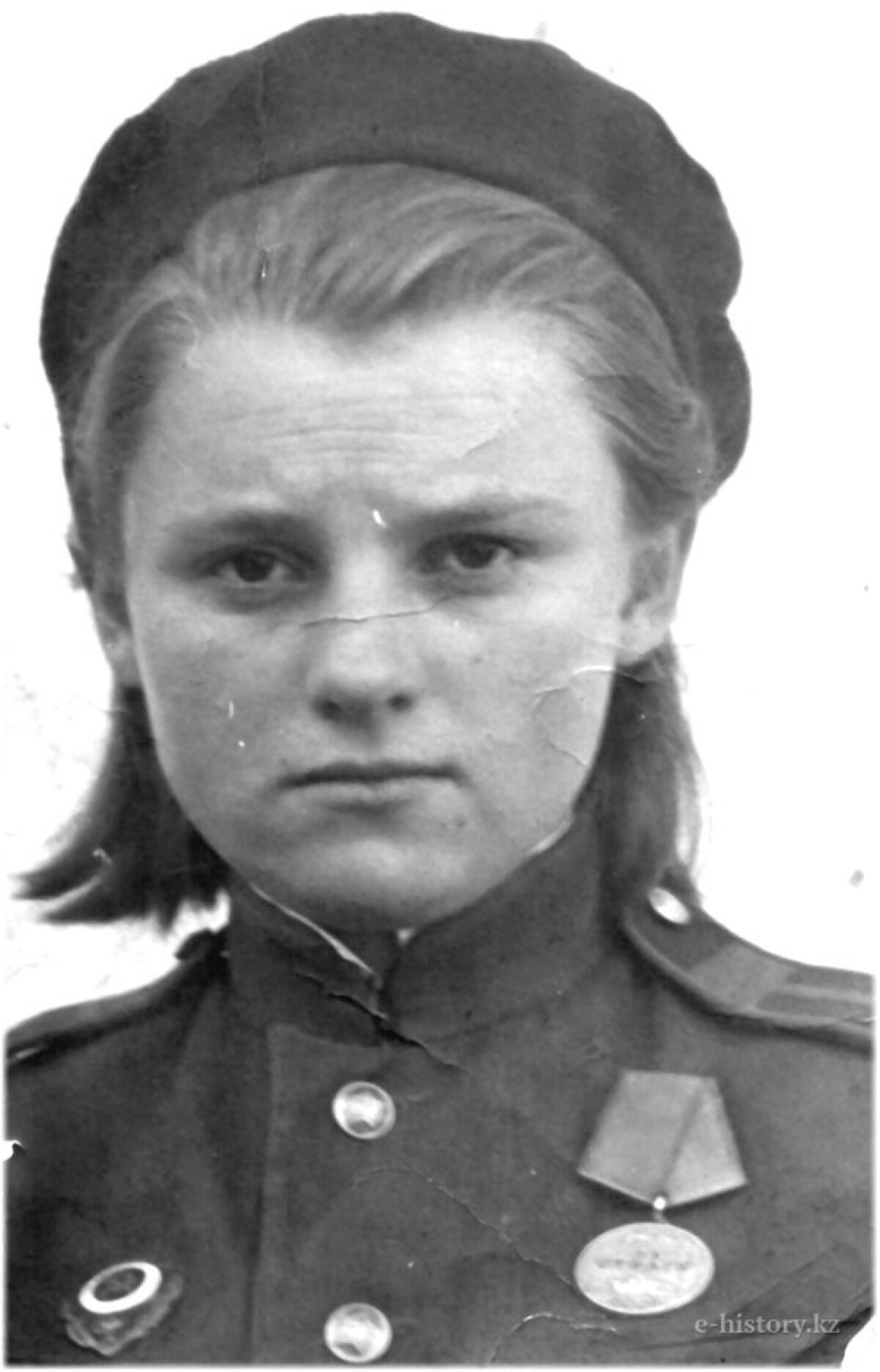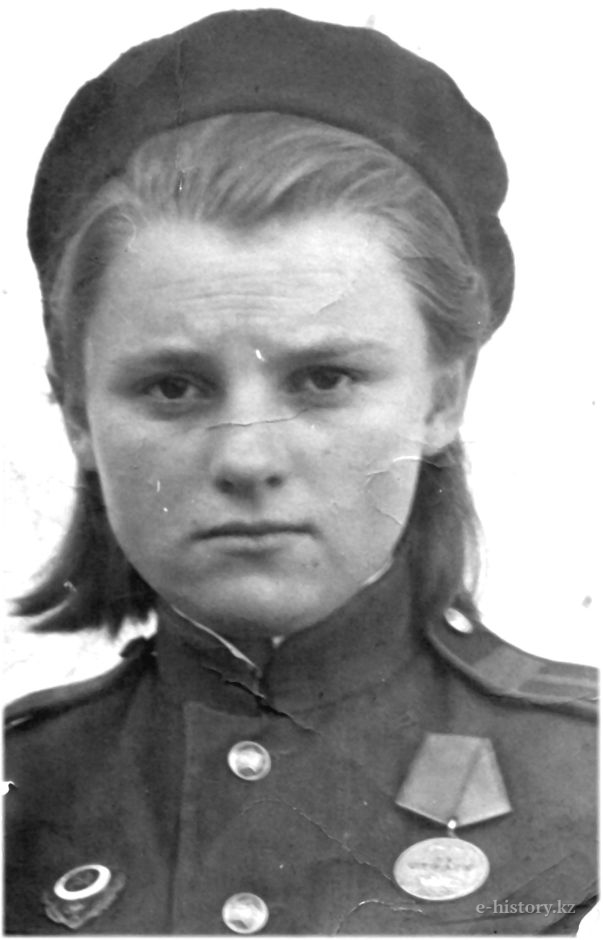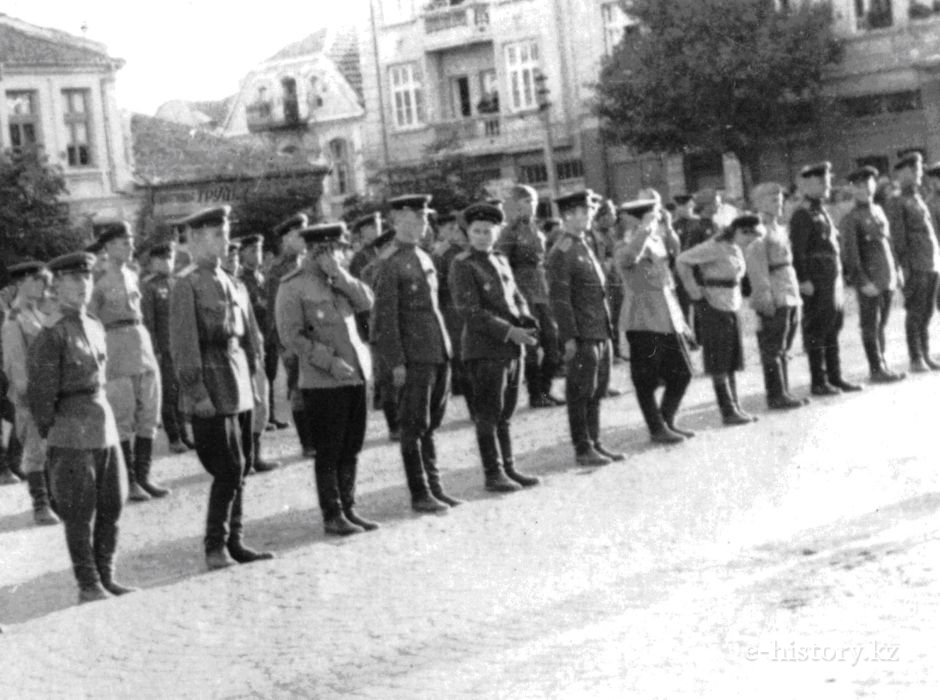
People who witnessed the Great Patriotic War die every day. Very soon, we will not have an opportunity to hear a true story from one of them. Therefore, we have to record their priceless stories.
I even didn’t know that a veteran of the WWII lives in a nearby street. Lydia Sevalneva was a Guard Sergeant of the Medical Service. For her service, she was awarded the medal "For Bravery" and the order of the "Red Star".

She doesn’t like to tell about the war and herself. On 22 June 1941 when the war started she was a fifteen-year-old girl. She graduated the seventh grade of a secondary school and wished to continue her education. She still remembers that sunny and quite Sunday: alarming voice of a radio announcer and general distress. The next day her native city Donetsk, a major strategic hub, was bombed.
When Lydia was sixteen years old she entered the Donbas School for Sanitary Instructors. After one and a half months of medical service in a local hospital, all students (seventy young women) were sent to the front line. They had only very basic skills, including how to cover wounds and provide first aid. The war taught them how to survive, reach a wounded soldier under heavy fire, stop or control bleeding and transport patients on stretchers. The war also taught how to learn whether an injured soldier was alive or no aid was necessary...
It was only once when Lydia fainted. She saw a heavy bleeding when she was studying at the school of sanitary instructors. The soldier was wounded seriously, but the young nurse regained control over herself. Later on the front the blood and suffering became hard and unbearable features of her everyday work. But the first seriously injured soldier will remain in her memory forever.
In a reconnaissance company, she served as a sanitary instructor. Lydia took a place a girl who was killed in a battle of Dnieper in Ukraine. It was 1943, a turning and fateful stage in the war. The Red Army launched an offensive; our combatants gained the first trophy cars — Studebaker vehicles of the allied countries. It became easier to transport injured soldiers. By that time a heavy rifle, which each nurse had to hold along with two bags with bandages and medicines, was replaced by trophy pistol. Being a part of the 2nd Ukrainian Front the military unit, in which she served, was steadily moving through the territories of Bulgaria, Yugoslavia and Romania. The Soviet troops in these countries were met as liberators. There were heavy battles with fascists. But, as Lydia Sevalneva recalls, the Soviet combatants always said: "Those who didn’t fight in 1941 can’t say that they know what the war is"... Thus, sanitary instructor Lydia definitely knew that the most terrible things remained in the past.
She believes that she was a lucky one as she spent 1941 in the occupation. Though, how can we say that the life in a small and controlled by the enemy town was less terrifying? Lydia was lucky — her countrywoman (she was ethnic German) learnt that the occupants were preparing sending of the local youth to Germany. Fascists decided to make them slaves. The woman forewarned Lydia about this and the girl could hide. And she doesn’t think that it was a heroic decision to go to the front. At that period many people did the same — people said that they were older and went to fight.
— At that time children grew faster, — Lydia says.
Fortunately, we have never faced the same troubles which Lydia Sevalneva overcame. She doesn’t consider herself to be a hero and says that she was like others.
— It is unfair to tell only about the heroism of those who fought on the front, — she confidently says. — I spent the first half of the war under occupation, then lived at the rear and saw how people worked. I believe that all survivors deserve awards, pensions and respect. All people were heroes, including women and children. Only strong people are able to believe in victory when a half of a nation is under the control of the enemy.
Today it is interesting for us not only to learn historical events but to know much about peoples’ destinies, their characters, dreams and hopes... It is what before was avoided in the written documents of the war. That’s why I asked Lydia:
— How was it for a woman on the front being surrounded by men who fought for their Motherland?
— During the three years of the war, I never heard even a rude word! It is always difficult for women to fight as we were created by the nature for other purposes. It was difficult for women who cooked. Sometimes, they almost didn’t have food supplies but had to cook something for soldiers and officers because they needed energy to fight.
The war was difficult for telegraphists. Generally, it was a work for women. And how hard was the labour of laundresses! In the middle of the war, the military high commanders ordered to change soldiers’ dressings more often and clean the uniform better. So a certain brigade of laundresses followed each regiment. Women washed closing with their own hands and frequently in cold water using primitive cleansing agents. They also could become the victims of the enemy’s fire like others.
It was hard for us, nurses, as well. Men always tried to help us, like to other women. They could hold stretchers, lift a vessel with water, and repair a mechanism. And the most important was we didn’t need to ask them. Soldiers and officers were very kind and called us sisters. They remained humans in the war, — Lydia recalls.
And women remained women. I’m looking at a photo taken on the front. It depicts the straight line of officers. All of them wear breeches and boots. The photo was taken in Bulgaria. The officers lined up on a square of a liberated city to receive their rewards. Lydia was awarded as well. She received the Order of the Red Star. And even on this small and blurred photo we can definitely see the only woman among men.

— Dear Lydia, did you happen to use your pistol?
She answers hesitantly:
— Once I did. But I do not want to talk about this.
I insisted and she told the following:
— It happened at the end of the war in 1945. We were in Hungary, on the Hron river not far from the village of Solginy. We were surrounded by the enemy. Feeling approaching defeat fascists resisted vigorously. We retreated and advanced moving on Budapest. Our brigade was caught in a trap. We lost many combatants, thousands and thousands of people. That was the most enormous losses. Nobody wanted to be killed in the end of the war when everybody could feel and wait for the future victory. And I have to use my pistol there. It was self-defence. We tried to escape and the enemy followed us. I do not want to recall this, it’s too hard...
Only now I can realise that all soldiers and officers from her military unit, who lost their lives there, were still alive for her and she again experiences their death while talking about this battle... And it hurts. Whether it was the Guardian Angel, as Lydia believes, who protected her until the Day of Victory, or military luck, but next time she used her trophy pistol on 8 May 1945 in Hungary to celebrate the victory with her fellow soldiers. And they were firing all day long!
— I’m a very happy person, — Lydia Sevalneva says. — I survived in the Great Patriotic War, saw many countries and people who made a stroke for the history. I was wounded but still live. I have a happy family, many grandchildren and four great-grandchildren. I am 87-year-old woman but I really wish to live, see my relatives and enjoy our life. Therefore, I would like to warn those young people who behave like they are tired of life and waste the time to drink alcohol. The life is so good, so save and never risk it! Live and enjoy!
You are so right, dear Lydia! Nobody, except you, who fought in the war, can know the value of the life...
Berger Danila,
grade 5 student of the Secondary School № 5,
Shakhtinsk, Karaganda region
